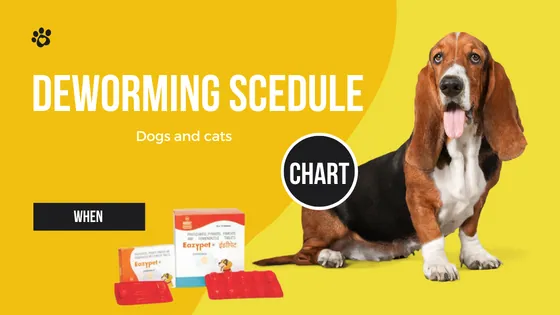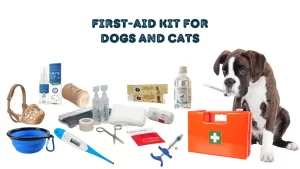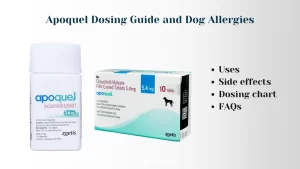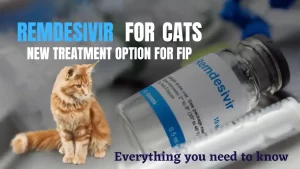Intestinal Parasites and Their Treatment in Dogs and Cats
Most of the pets suffer from intestinal worms once in their lifetime and most of the time it goes unnoticed due to regular deworming protocols. Low level of worms most of the time remain undiagnosed but when level of infestation increases and symptoms like vomiting, diarrhoea, weight loss, appetite loss, rough haircoat, tail biting, coughing etc appear then diagnosis is made. In case of severe infestations intestinal blockage and even death can be observed if left untreated.
What does deworming mean?
Practice of getting rid of worms is called deworming and medicines used for this purpose are called dewormers. It can be done at home or a vet clinic if needed.
How pets get infested with worms?
Mainly there are two ways:
- External parasite (intermediate or mechanical host) – Fleas, Ticks, Mosquitos etc.
- Ingestion of parasite eggs, larvae or cysts with contaminated food/ water.
*Vertical transmission from mother’s placenta or milk has also been reported.
Why it is necessary or so much important?
Worms are parasites which takes nutrition from host. It causes nutritional deficiency and improper assimilation of nutrients. Sometimes worm-load may cause intestinal obstruction. Aberrant visceral larva migration sometimes results into serious problems. Heart worm like infestations may be fetal or life threatening in dogs.
It also helps in prevention of infestation to humans. Toxocara like worms can cause serious health issues in humans. Vertical toxocara larva migration from mother to foetus in mice have shown to cause abortion.
How do you know if your dog/ cat has worms or what are the signs and symptoms of worm infestation?
Common signs of worm infestation are:
Intestinal worms: colic or abdominal pain, anorexia, vomiting, lethargy, distended abdomen, anaemia, diarrhoea, dull and dry hair coat, tail biting or licking under the tail (Specially Trichiuris or Whipworm), sometimes blocked intestine.
Heartworm (Dirofilaria immitis): Coughing / shortness of breath
In case of heavy infestation worms can be seen in stool, vomit or cough.
How to Confirm the Worm infestation / How will you know if your pet's poop is contaminated with worms?
Microscopic examination of poop or stool is helpful in diagnosis of parasites (eggs, cysts or segments). Sometimes parasites or segments are visible in poop with naked eyes. Either direct sampling from rectum of your pooch can be done or sample can be taken from poop in a container.
How to Diagnose or confirm if pet is having worms?
The presence of worms in pets can be confirmed or diagnosed with the help of –
- Symptoms (mentioned in the text above)
- Worms as a whole in stool, vomit or cough
- Stool / Faecal examination (most common and cheapest method)
- Blood test (Antigen/antibody-based tests – e.g. ELISA for Dirofilaria)
- Radiographs / Ultrasonograms etc.
Common worms of dogs and cats:
- Roundworms
Round worms are most commonly found intestinal worms in dogs and puppies.
Common round worms are: Toxocara cati, Toxocara leonina
- Tapeworms
These are also known as cestodes and are long – flat worms.
Common tape worms are: Echincoccus multilocularis, Taenia pisiformis, Taenia taeniaformis, Dipylidium caninum, Echinococcus granulosus
- Hookworms
Common hookworms of dogs are: Ancylostoma caninum, Ancylostoma braziliense, and Uncinaria stenocephala.
In cats: Ancylostoma tubaeforme, Ancyclostoma brazilense, Uncinaria stenocephala
- Whipworms
Trichuris vulpis
- Heartworms
Dirofilaria immitis
What medicines are indicated or used for deworming in dogs or What is the treatment of worm infestation in dogs or cats?
Commonly used salts are pyrental (hookworms and ascarids), praziquantel (tapeworms), febantel (nematodes, whipworms), albendazole, fenbendazole, ivermectin etc. Some of these comes in combination or as a single salt. The selection of salt or medicine depends on the type of worms and the severity of the infestation. Not all medicines are suitable for use in puppies/kittens or dogs and cats. Praziquantel is metabolized in the liver and not a part of puppy deworming liquids.
Please note that dosage in pets (dogs and cats) are bodyweight dependent. Check bodyweight of your pet before administering the deworming medicine to calculate right dosage.
How to choose the right dewormer for your dog / cat?
Usually, combination of two or more salts is used to cover variety of worms or broaden the spectrum or to provide umbrella cover. Efficacy of different antiparasitic agents is not equal on all of the worms so combination is a wise choice if it not for particular type of worms. This is the reason is it advisable and recommended to keep switching your deworming preparation (combinations), rather than keeping the same all the time. Dewormers strictly indicated in dogs should not be used in cats. Praziquantel, ivermectin containing preparations are not given in puppies and kittens.
Some herbal / natural dewormers contains diatomaceous earth, turmeric, pumpkin seeds (cucurbitacin), clove, papaya seed extracts etc.
Is deworming safe in pregnant dog or cat?
Yes. Some medicines like fenbendazole and ivermectin are safe to use in pregnant female dogs and cats. But not all the dewormers are safe for this use e.g. Albendazole is associated with teratogenic and embryotoxic effects. It is safe to deworm your pet during heat or oestrous.
Always consult your vet if you are a pet parent and your pet needs to be dewormed during pregnancy.
How to get dewormer medication for your dog?
Over the counter dewormers are available but some of them may need a vet’s prescription for dispensing. Cost may vary greatly on depending on the efficacy and combination etc.
How deworming medicines work?
Most of them paralyses worms and they get digested by intestinal enzymes or excreted in stool. Onset of effect may vary from minutes to hours after administration. Peristaltic movement of the intestinal tract expels worms.
How to deworm your dog / cat? What's the best time to give your dog a dewormer - before or after eating?
Deworming medicines comes in various forms like oral suspensions, tablets, chews, spot-on solutions and injections. Injectable medicines are given by a vet. Over the counter medicines or dewormers can be given along with food (disguising of pills in treat / cheese, butter etc may be helpful) or placed directly into mouth using a pill dispenser or hands. Fasting is not needed for this purpose. Spot on solutions can be applied on the back or along the spine where licking is not possible (bathing restrictions should be followed in this case).
You may also need to keep your dogs or cats separated for at least a few hours in case of spot-on application. Licking or grooming each other’s may result in to accidental ingestion. Spot-on liquid should be applied along the back where licking is not possible for pet itself.
How much medicine to give?
It depends on the type of worms, combination of medicines, type of dosage form/ preparation. But always according to the bodyweight.
e.g. in dogs: Deworming suspensions liquids usually @ 1 ml/kg bodyweight, tablets for dogs @ 1 tablet/10 kg bodyweight or 35 kg body weight depending on the preparation, spot on medicines according to body weight range. Appropriate combination can be used in case of not available ranges. Ivermectin like injection dosage depends on the type of worm infestation.
e.g. Cat deworming tablets: ½ tablet/ 2 kg bodyweight e.g. Tablet Kiwof cat
Some medicines have a wide margin of safety but some may result into side effect on inappropriate dosing.
What to expect after deworming?
Not all the parasites are visible through naked eyes like hookworms and most of the round worms. Only a few parasites like tapeworms or in case of heavy infestation they can be seen in stool or faeces after deworming. Worms can be seen as white specks or live in poop or vomiting if throwing up after deworming. Sometimes blood specks can also be seen and should be reported to your vet if persists. Improvement in general appearance, activity and symptomatic relief can be observed after some time of administration of deworming medicines.
Sometimes taste of medicine / toxins from or overdosing side effects may cause GI signs like vomiting or diarrhoea in pets.
When can I bathe my dog after deworming?
Bathing restrictions are applied for spot on medicines. Bathing should not be done after 48-72 hours of spot-on application. Bathing should be avoided if your pet is sick and already on medication. Bathing in young puppies before / after vaccination or deworming may be stressful and they may fall sick but wet wipes or towel drying can serve the purpose.
What are the side effects of deworming overdose?
Deworming overdose may result into GI sings like vomiting, anorexia, diarrhoea, lethargy, nervous signs occasionally and even death of pet. Contact your vet in case of overdosing or side effects.
How to Prevent worm Infestation in pets?
Prevention is the best medicine. Regular deworming is helpful in the prevention of worms. The best thing you can do is pest control (including fleas and mosquitoes), food hygiene, keeping away healthy pets from the pets that carry worms, and clean common dog walking area or yard.
Ensure about deworming and ectoparasite control before leaving your pet in a boarding.
Can any intestinal parasites be passed on from a dog to people? Can my indoor dog still get intestinal parasites?
Yes. Zoonoses risk is always there.
Will a pet insurance help?
Usually, add-ons are offered by pet insurance providers covers cost of preventive care, including deworming. Always read the terms and conditions carefully.
What if your dog is positive for worm infestation?
Take him to the vet / deworming according to the type of worm infestation should be give and repeated as advised. e.g. in Dogs: Fenbendazole @100 gm/kg body weight once or 50 mg/kg bodyweight for 3 to 5 days. Combination of dewormers viz. Kiwof Plus tablet should be repeated in 2 weeks interval. Always ensure negative results of two consecutive stool tests at two weeks interval before switching to regular deworming protocol.

When should and how often you should deworm your dog/ cat? Deworming schedule or chart for dogs / puppies:
Printable puppy deworming schedule
In pups earliest deworming can be done at the age of 15 days.
15 days to 90 days (3 months) – Every 15 days
3 months to 6 months – Every month
After 6 months of age deworming should be done every three months interval.
Deworming schedule or chart for Cats / Kittens:
In kittens earliest deworming can be done at the age of 6 weeks.
45 days to 90 days (3 months) – Every 2 weeks (6, 8, 10 and 12 weeks)
3 months to 6 months – Every month
After 6 months of age deworming should be done every three months interval like dogs.
If deworming is due or has to be done then it always should be done prior to vaccination.
Why so early deworming in puppies??
Do you know worms can be present in puppies at birth which are often passed through the placenta or mother’s milk.
If you are a pet parent then always consult your vet before giving any medicine to your pet. Self-medication may harm your pet and can be life threatening sometimes.
Disclaimer: This post and the dosage mentioned in the text should not be used as a substitute for prescribed medications or professional advice. Dosages are for veterinary professionals and can be adjusted accordingly.





